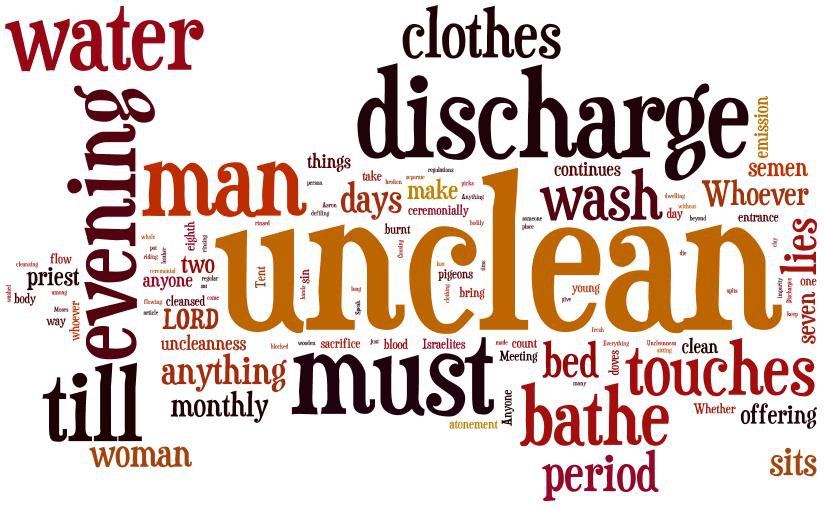Watch
Events
Articles
Market
More
#unclean
This word is used more than 90 times in Leviticus. It is mostly thought of when talking about bacon, shellfish and what is #food but it goes much further than what we put into our mouths and covers things causing a person to become unclean. There are steps to take to prevent #uncleanness and to become #clean again.
BUT, what does it mean to be unclean and what is the #consequences of being unclean in our modern day?
What is your understanding of uncleanness and do you still follow the #torah on how to prevent and deal with uncleanness in all aspects of your life?




Ovadyah ben Yisrael
Presently, without a Temple and priesthood, no one can become completely ritually clean. All of us have corpse uncleanness, the worst kind, which cannot be cleansed without the water and ashes of the red heifer. But just because we cannot fulfill YHWH's commands perfectly in every way doesn't mean we shouldn't try our best in the ways we can.
Delete Comment
Are you sure that you want to delete this comment ?
Rhy Bezuidenhout
The we have Ezekiel who was instructed to bake his break over human #dung. He then told Father that nothing #unclean has ever passed over his lips. Father then tells him he can use animal dung.
Would Father have wilfully instructed Ezekiel to commit a sin if becoming unclean was a sin?
Ezekiel 4::13 Then the Lord said, “Thus the children of Israel will eat their bread unclean and #defiled among the nations where I will banish them.”
Uncleanness separates us from Father, but the impact is less than sinning.
What are your thoughts on this?
Delete Comment
Are you sure that you want to delete this comment ?
Ovadyah ben Yisrael
The answer is, becoming “unclean” (tamei - טמא) is rarely if ever a sin, in and of itself, but can lead or cause one to commit a sin if it is not dealt with according to scripture.
There is another question you might ask in addition to “what is being ‘unclean,’” and that is – “what, exactly, is ‘sin?’” You might presume that you already know, and that could lead you to error. Yes, it is “transgression of the law,” according to 1st John 3:4, but did you know that the word “sin” in western bibles is used to translate at least four different Hebrew words, each having a distinct and different meaning? This is not a small thing, but vitally important to the understanding of all scripture, of the sacrifices found in the Torah, and even to the very nature of the sacrifice made on our behalf of Messiah and our salvation.
Learn the difference between these two words, where they are used in scripture, and find out how they impact your interpretation and understanding of the nature of sin:
• Chattah (חטא) – unintentional or minor sins; “missing the mark,” an infraction for which the Torah prescribes restitution and/or an animal sacrifice effecting atonement, and which does not carry a death-penalty.
• Pesha (פשע) – intentional or major sins; “transgression,” willful disobedience and rebellion for which there is no remedy or atonement found anywhere in the Torah, and which always carries a death-penalty.
If you are diligent and honest in your study, this should impact you greatly and change how you view the Torah, the Writings of the Disciples, and Yehoshua’s atoning sacrifice for us.
Delete Comment
Are you sure that you want to delete this comment ?